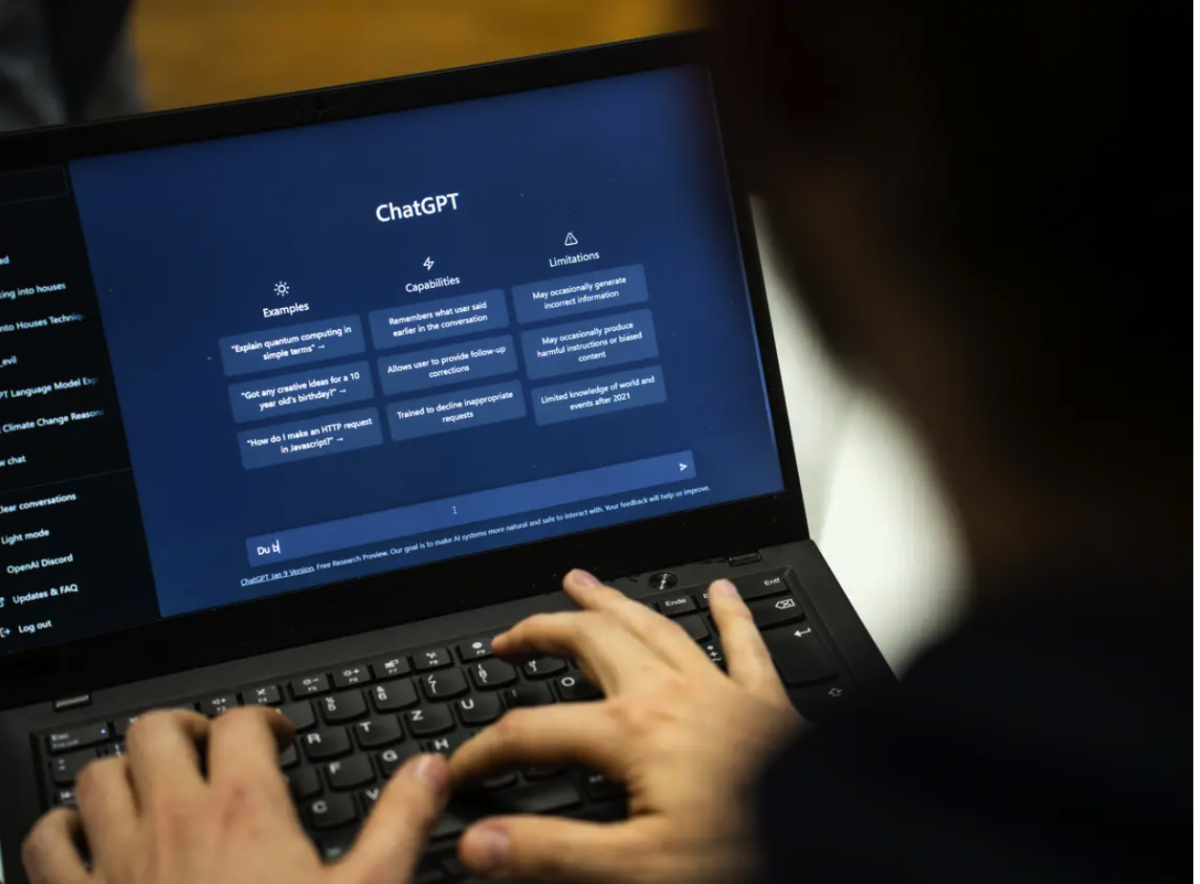AI is everywhere. From online chatbots to product recommendation algorithms, artificial intelligence has been steadily infiltrating our daily lives for years. The recent virality of tools such as ChatGPT has brought AI usage and development to the forefront, making headlines in major newspapers and sparking discussions about its implications across various sectors. This technological advancement has affected specifically our higher education system.
As colleges and universities strive to navigate a competitive landscape filled with thousands of qualified applicants, the pressure to adapt with innovative solutions has escalated. Here enters AI: capable of analyzing huge amounts of data, identifying patterns, and offering insights that were previously unattainable and unrecognizable in the human-led process. This technology promises to streamline the admissions process by boiling it down to data. By automating the initial sorting of applications and assisting in decision making, AI could help institutions better manage admissions.
That being said, the integration of AI into college admissions is not without controversy. While it offers numerous advantages, it also raises critiques about fairness, bias, transparency, and even the meaning of the loss of human judgment in evaluating prospects. With institutions trying to keep up with the bulk of information that can be attained through interest and data tracking, they must weigh the benefits with the ethical implications of relying on algorithms to shape and decide crucial information shaping students’ futures.
Traditional admissions can be a painstakingly slow process, taking up to months from initial submission to decisions. Using AI, institutions can dramatically reduce the time spent on these initial application screenings, freeing up admissions officers to focus on the more nuanced aspects of candidates’ profiles.
Another potential benefit and criticism concerning the use of artificial intelligence is its ability to track and analyze online behavior and engagement with college websites and social media. It has the ability to perform a targeted search approach for colleges to align outreach with student interests but also raises privacy concerns. People are beginning to question how this large quantity of data collected is stored, used, and protected.
There is also the worry that AI might overshadow the human aspect of admissions. While algorithms can analyze quantitative data, they struggle with qualitative factors, such as personal experiences, creativity, and resilience–qualities that, more often than not, are among the most important pieces in determining an applicant’s fit for a college. Relying too heavily on AI could diminish the subtlety of the admissions process.
The goal should be to use AI as a supportive tool that enhances, rather than replaces, human judgment. With thoughtful implementation, despite its downfalls, AI can be an undeniably helpful tool in completing the admissions process. Maintaining the integrity of the college admissions process is of utmost importance. Moreover, the reliance on technology to make decisions that affect futures raises questions about fairness and accountability. This begs the question: if an AI system makes a mistake, who is responsible?
Ultimately, AI is only as effective as the data and information on which it is trained. If historical admissions data reflects biased practices related to socioeconomic status, race, or other factors, AI could inadvertently enforce these biases, disadvantaging entire groups of applicants.
As the conversation around AI continues to evolve, finding a balance between advancement and the human experience will be crucial for shaping the future of college admissions. As there remains a variety of opinions on the necessity and ethics of artificial intelligence use, there’s no denying its capacity to bring changes to an otherwise relatively untouched system. The question stands: how can we wield the power of AI while ensuring the survival of the personal touch that makes education meaningful?
Edited by Lilya Elchahal



